I have tried the code below: the purpose is to generate a dictionary where each key has a list as a value. The first iteration goes well and generates the item as I want it, but the second loop, the nested for loop, doesn't generate the list as expected.
Please help me with this simple code. There must be something wrong with it, the code is as below:
schop = [1, 3, 1, 5, 6, 2, 1, 4, 3, 5, 6, 6, 2, 2, 3, 4, 4, 5]
mop = [1, 1, 2, 1, 1, 1, 3, 1, 2, 2, 2, 3, 2, 3, 3, 2, 3, 3]
mlist = ["1","2","3"]
wmlist=zip(mop,schop)
title ={}
for m in mlist:
m = int(m)
k=[]
for a,b in wmlist:
if a == m:
k.append(b)
title[m]=k
print(title)
The results are like:
title: {1: [1, 3, 5, 6, 2, 4], 2: [], 3: []}
Why do the second key and the third key have an empty list?
Thanks!
